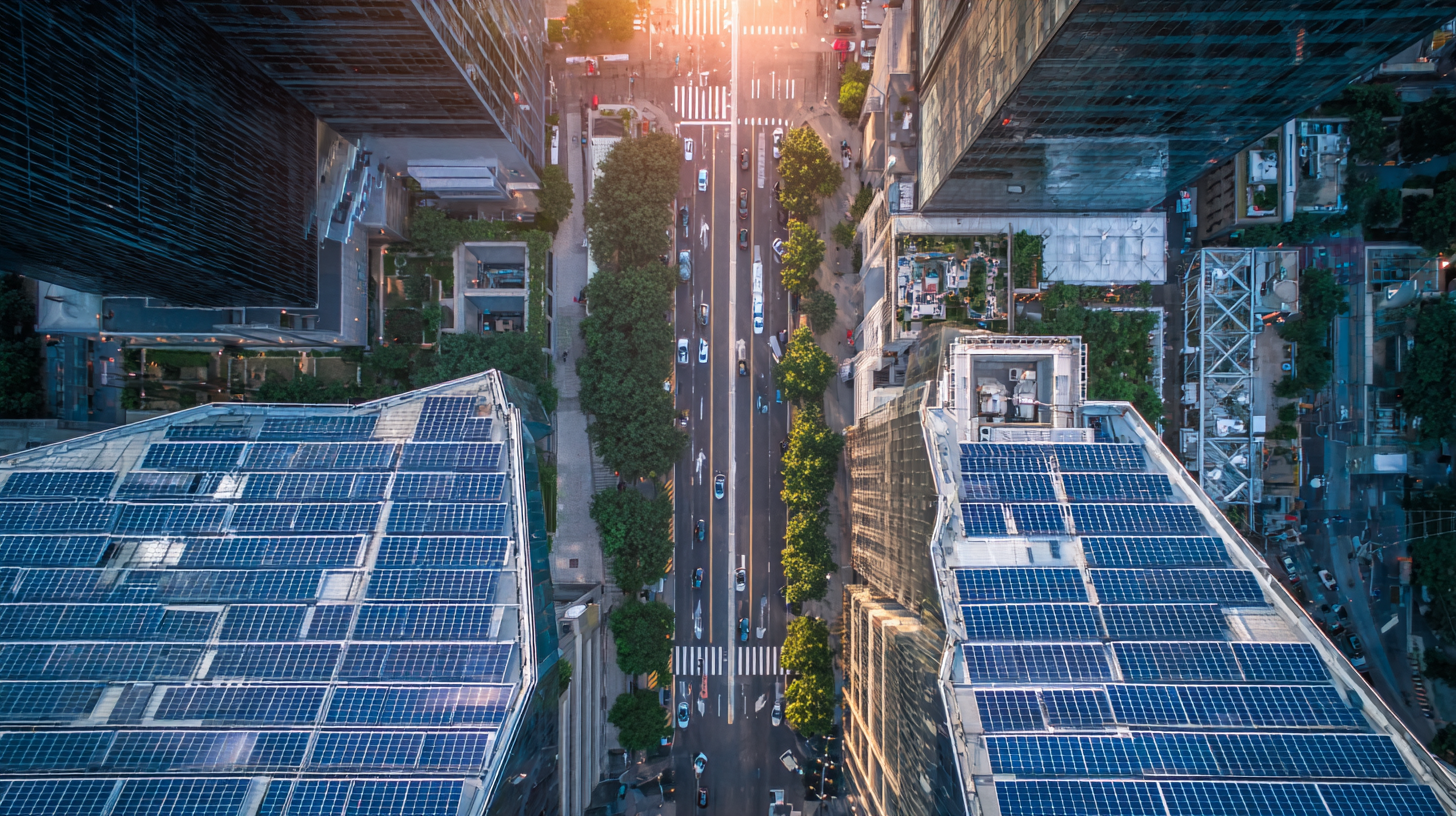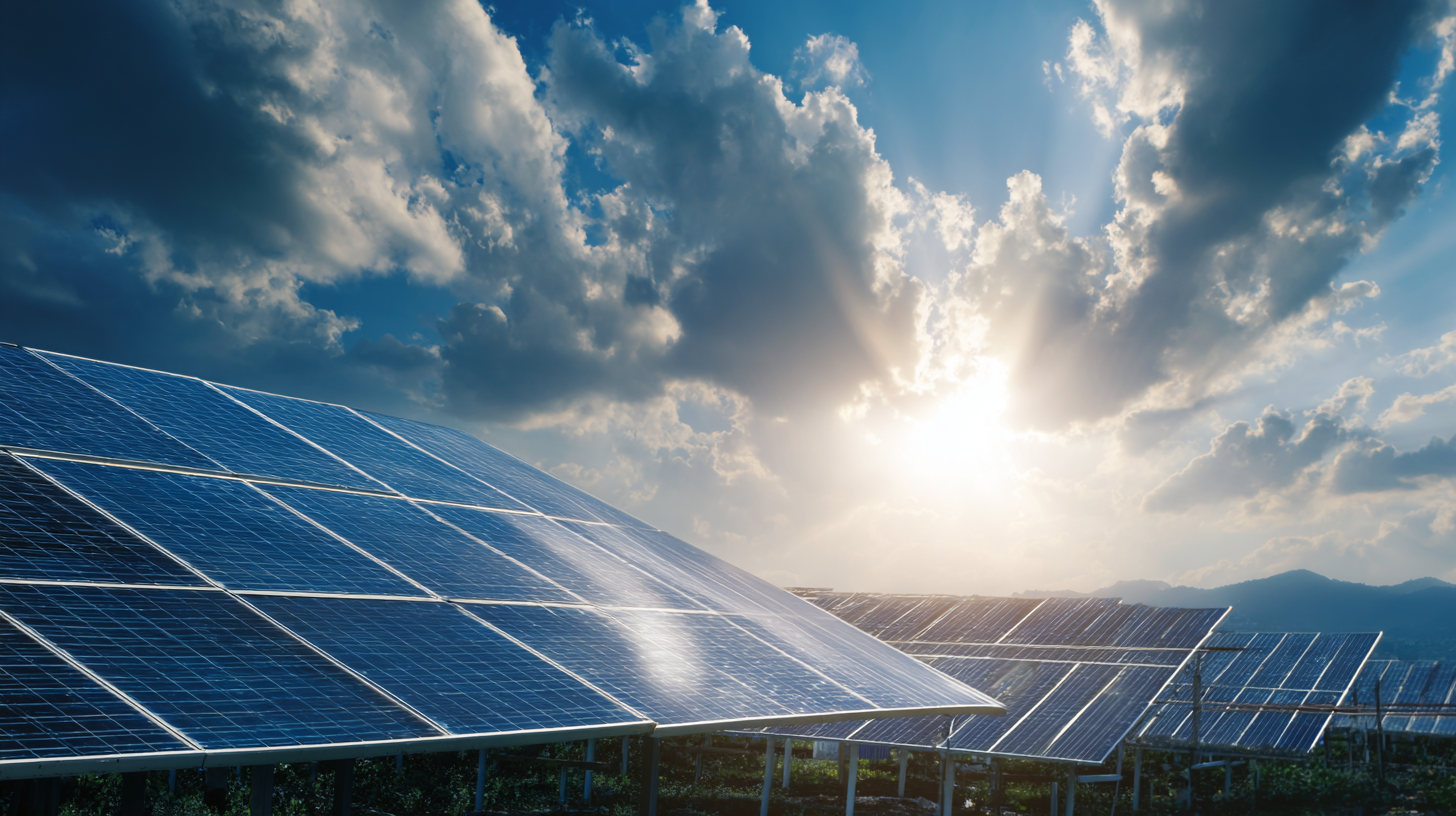Ultimate Checklist for Choosing the Best Solar Systems: Key Metrics and Expert Insights
The solar power industry has witnessed exponential growth, with global solar installed capacity reaching over 800 GW by the end of 2020, as reported by the International Renewable Energy Agency (IRENA). This surge highlights the increasing importance of selecting the right Solar Systems for both residential and commercial applications. However, the process of choosing the best solar solutions can be daunting, given the myriad of options and performance metrics available on the market. As efficiency and cost become critical factors for consumers and businesses alike, understanding key aspects such as certification, technology type, and supplier reliability is essential.

In this ultimate checklist, we will provide you with expert insights and key metrics to consider, helping you navigate through the complexities of the solar landscape and ensure that you make informed decisions that will benefit both your energy needs and the environment.
Evaluating Manufacturer Reputation: Key Indicators of Quality
When selecting a solar system, evaluating manufacturer reputation is crucial in ensuring a quality investment. According to the Solar Energy Industries Association (SEIA), a reputable manufacturer not only signifies reliability but also reflects a commitment to quality. Look for brands that have been in the market for several years and have established a solid track record. Reports indicate that companies with a minimum of 10 years in operation tend to produce more reliable products backed by extensive warranties.
Tip: Always check for manufacturer certifications. Products that comply with recognized industry standards, such as IEC and UL, demonstrate higher levels of safety and performance. Additionally, read customer reviews and consult platforms like the Better Business Bureau (BBB) to gauge customer satisfaction and complaint resolution efficiency.
Evaluating warranty offers can also provide insights into a manufacturer’s confidence in their products. A comprehensive warranty lasting 25 years or more is often a good indicator of quality. The National Renewable Energy Laboratory (NREL) states that companies offering robust warranties tend to have lower failure rates, making them a preferable choice for consumers seeking long-term reliability.
Tip: Don't forget to assess the manufacturer’s financial health, which can be a strong indicator of its sustainability and ability to honor warranties in the future. Look for recent financial reports or third-party evaluations to ensure the company is stable and has a good market presence.

Assessing Product Durability and Performance Ratings
When selecting a solar system, assessing product durability and performance ratings is crucial for long-term satisfaction and efficiency. According to the National Renewable Energy Laboratory (NREL), solar panels typically have a lifespan of 25 to 30 years, but selecting products from manufacturers with robust warranties can further ensure durability. Look for panels that offer at least a 25-year performance warranty, as this indicates confidence in maintaining at least 80% of their original efficiency over time.
Performance ratings, often expressed in terms of efficiency and temperature coefficient, also play a significant role in product selection. The EnergySage Solar Marketplace Report highlights that the average solar panel efficiency has improved over the years, with many high-quality products reaching efficiencies upwards of 20%. Furthermore, a lower temperature coefficient is desirable, as it signifies better performance under high heat conditions. Systems rated with a temperature coefficient of -0.3%/°C or less are preferable, indicating they retain more efficiency in varying environmental conditions. When investing in solar technology, prioritizing these attributes can lead to significant energy savings and enhanced system longevity.
Ultimate Checklist for Choosing the Best Solar Systems: Performance Ratings
This chart represents the performance ratings of various solar systems based on key metrics such as efficiency, durability, and warranty. The data illustrates the importance of these factors in selecting a reliable solar energy solution.
Understanding Warranty Terms and Customer Support Services
When choosing the best solar systems, understanding warranty terms and customer support services is crucial for ensuring a stress-free solar experience. A comprehensive warranty provides peace of mind by covering potential issues that may arise, protecting your investment in renewable energy. Look for warranties that last at least 25 years, as this indicates the manufacturer’s confidence in their product's longevity. Pay close attention to what the warranty covers, including equipment malfunctions, performance guarantees, and installation work.
Additionally, consider the quality of customer support offered by the solar provider. A responsive support team can make a significant difference when you encounter installation challenges or require maintenance. Opt for companies that offer a clear channel for communication, whether it be through phone, chat, or email.
Tip: Before making a decision, read customer reviews to gauge the experiences of others regarding warranty claims and support services. A company with excellent customer feedback will likely stand behind their products and provide timely assistance when needed. Ultimately, a thorough understanding of warranty terms and robust customer support will empower you to choose the best solar system for your needs.
Analyzing Manufacturer Certifications and Industry Standards
When selecting the best solar systems, understanding manufacturer certifications and industry standards is crucial. Certifications not only ensure that the products meet certain performance and safety benchmarks but also reflect the manufacturer's commitment to quality and environmental considerations. The landscape of testing, inspection, and certification (TIC) is thriving, with the global market projected to grow from USD 399.39 billion in 2024 to USD 499.00 billion in the coming years. This growth highlights the increasing importance of rigorous certification processes in various industries, including renewable energy.
As a buyer, it is essential to conduct due diligence when evaluating solar systems. Assessing a manufacturer’s testing and inspection practices can reveal how compliant they are with current industry standards. Additionally, the TIC market indicates a trend towards greater accountability and quality assurance, which can directly impact the efficiency and longevity of solar systems. By prioritizing products that have passed reliable certification protocols, consumers can make informed decisions that align both with their sustainability goals and their investment in solar technology.
Comparing Pricing Structures and Financing Options in Solar Systems
When it comes to choosing the best solar systems, understanding pricing structures and financing options is crucial. As projected for 2025, the average cost of solar panels will vary based on system size, panel type, and the specific electricity needs of a home. Notably, these prices reflect broader market trends influenced by technological advancements and increased competition within the solar industry. Consequently, potential buyers are encouraged to conduct a careful cost-benefit analysis that takes into account not only upfront costs but also long-term savings on energy bills.
Financing options play an equally vital role in making solar energy accessible. Whether through loans that offer competitive rates and flexible terms or various incentive programs, homeowners can significantly reduce their initial investments. Industry reports indicate that the best solar panel loans provide no down payment and low fees, making it easier for households to adopt sustainable energy solutions. Additionally, a critical review of sustainable upgrades in existing buildings highlights the financial viability of integrating solar energy, emphasizing that strategic investment in solar technologies can yield significant returns, especially in the context of rising energy costs and a shift towards greener practices.

Contact Details
Address:
Solar Pump Solutions,
Borrisokane, Co. Tipperary, Ireland.
